Put the Fun Into Learning to Work Better Together
Problem-solving games are fun activities which have the serious purpose of helping people learn how to solve problems and overcome challenges. Being effective in business, in whatever role, means being able to analyse problems, and identify and implement the best solutions, working individually and with others. Problem-solving games help familiarise people with the techniques and steps they need to do this and can make a major contribution to training and coaching in this area, by taking people through all this in an enjoyable way.
It’s learning and training, Jim – but not as we know it!”
Problem-solving games can help us reduce our stress and stay focused in tricky business situations, by appreciating the ‘game’ aspects. In our challenging world, it’s no wonder games and gaming, whether face-to-face or online, are so popular.
Playing games as adults takes us back to being young and believing we can navigate life’s adventures and come through. So, coaching and mentoring a team to deal with an unpredictable environment with the aid of problem-solving games turns real-life challenges into a game. It helps take away the fear and overwhelm, gives back our sense of security and control, and makes the situation seem less overwhelming. Problem-solving games also help group members get to know each other and work collaboratively.
Calling out all:
- HR managers
- L&D managers
- Line managers
- And strategy managers.
Now the question is: how can you embody the best of Problem-Solving Games and empower your team to overcome challenges? Well, that’s where this article comes into – sorry, there’s no other word for it – play!
You Will Discover:
- I – What are the 7 problem-solving techniques?
- II – What problem-solving games are there, and what problem-solving techniques do they teach?
- III – Why are problem-solving games important?
- IV – What is the science behind Problem-Solving Games?
- V – What kind of game player are you?
- Conclusion
Ready, Player 1? Let’s Go!
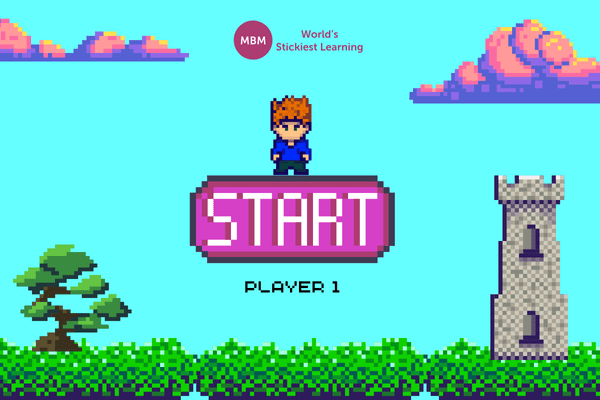
Problem-solving games put the ‘fun’ into ‘functional’ and people love them. Parents bring up their children on board games and activity cards. Older children and teens enjoy escape rooms, video games and online gaming. Role-playing games like Dungeons & Dragons have been part of Western culture for the last few decades, spawning a universe of similar games, and people happily travel long distances to play them face-to-face with friends.
For leaders and managers, the trick is to use these problem-solving games to engage your employees at an emotional level, while they learn and importantly, practise, the skills they need to handle situations and drive the business forward.
Of course, a grumpy, old-school authoritarian boss might say, “Enough fun and games. Get on with your work!” And the David Brent character’s attempts at motivational coaching in the much-loved Noughties workplace comedy “The Office” haven’t helped how a generation of British workers view managers’ attempts to inspire them. Yes, that’s all true. But take this article in the spirit it’s intended, and you and your team will be sure to benefit.
I – What Are the 7 Problem-solving Techniques?
Coursera, the online course provider, identify these 7 skills that make problem-solving easier. Here’s a quick reminder of what they mean:
Sticky Learning ® is 7 times more effective than 1-day training courses. Plus, you will get a Chain of Evidence proving your Return on Investment. Discover soft skills training that changes behaviours long term.

#1. Analysis:
Making a thorough study of the problem and defining it so others can understand it and add their input to our collective understanding and arrive at the best solution.
#2. Communication:
Gathering information, sharing our analysis with others, receiving their ideas and agreeing on the way forward and who will do what.
#3. Emotional Intelligence:
The ability to manage your own emotions and understand the emotions of people around you.
#4. Resilience:
Being able to recover from, adjust to, and successfully adapt to, difficult life experiences.
#5. Creativity:
Using imagination or inventiveness to create something or find new solutions.
#6. Adaptability:
Ability and willingness to change, to suit changing conditions and situations.
#7. Teamwork:
Working together as a group to achieve shared goals or carry out tasks, effectively and efficiently.
Problem-solving games can help trainers, coaches, mentors and line managers coach employees about all this.
II – What Problem-solving Games Are There, and What Problem-solving Techniques Do They Teach?
Problem-solving games fall into two kinds – games to play with groups of colleagues and games to play one-to-one:
2.1: Games to Play With Groups:
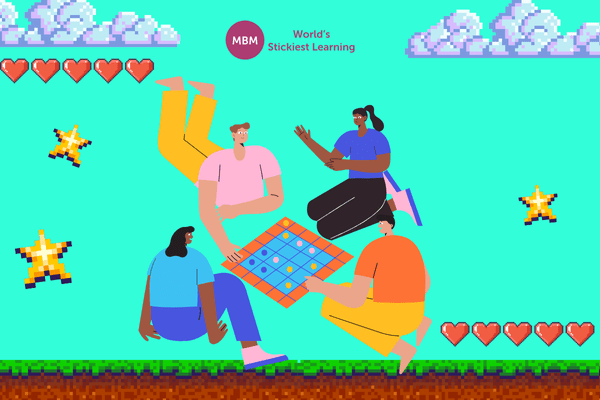
• Adventure and mystery games:
With Dungeons & Dragons (‘D & D’), you get involved in story-driven quests and puzzles with complex narratives, which you must cut through to work out the challenges. You pretend to be magical figures and creatures, with characters and traits that aren’t necessarily like yours. You stimulate your cognitive processes by uncovering secrets, solving mysteries and finding your way through the story. Just like someone takes their turn to be ‘it’ in a game of catch, in D & D someone is the dungeon master and chases after the dragons. Some individuals may not want to be the ‘baddie,’ but that’s okay, it’s all about collaboration and interaction.
• Escape rooms:
Whether physical or virtual, these call for collaboration and creativity. They also demand time management, because you’re against the clock. They make you think ‘outside the box’ – coming up with ideas, as well as escaping, communicating with team members, and developing strategies under pressure – and all the time remember this is a game.
“This actually IS a drill”: The armed forces and emergency services train their staff for crises with escape rooms and other drills. Major companies prepare for crises in the same way. We look later at supply chain operations using these games as part of readying their teams for the unexpected. But for other businesses playing problem-solving games, you’re not getting set for a crisis, you’re doing team coaching and having fun.
• Detective games:
The board games Cluedo and 221B Baker Street have given rise first to video versions and then online formats. With all of these, you’re collecting clues and racing against others.
• Strategy games:
Games like Risk and Go! challenge you to take part in complex planning, resource management and anticipatory thinking. You’re the big leader, with forces set on conquering the world. It’s not just about the next move. You also need a vision for the future, taking on long-term consequences and strategic advantages.
• Trading and property games:
The obvious one is Monopoly, in all its forms. There’s Catan, where you collect roads, towns and cities, and Moviemaker, where you collect a story, a director, a leading man and woman and various locations. There are also games like Epidemic where players fight against nature and the clock to acquire assets and contain and control disease outbreaks. That might be triggering for some people, because of Covid, so you need to be sensitive when you suggest this in a problem-solving games session.
• Improvisation games:
These games warm people up for creative sessions and brainstorming, especially with a diverse group, where you need to be open to the contributions of everyone in the room. For small groups, there are charades, as in the old TV show Give Us A Clue, with its miming. There’s also Call My Bluff, guessing what’s true or false. Or, to warm up problem-solving meetings, there’s always Two Truths and a Lie, One Word about Myself, 20 Questions, geographical endings and, dare we say it, I Spy (“something beginning with…”) There’s the shopping game. “I went to the shop and I bought a…” You go around the table adding one item to the list, and the first person to forget the items at the start is out. You carry on until there’s a winner. And when time is short, there’s always “Catch the ball and say the word.”
You can find plenty of other ideas for improvisation games online. A good resource is surfoffice.com.
2.2: Try These Problem-solving Games as One-to-ones
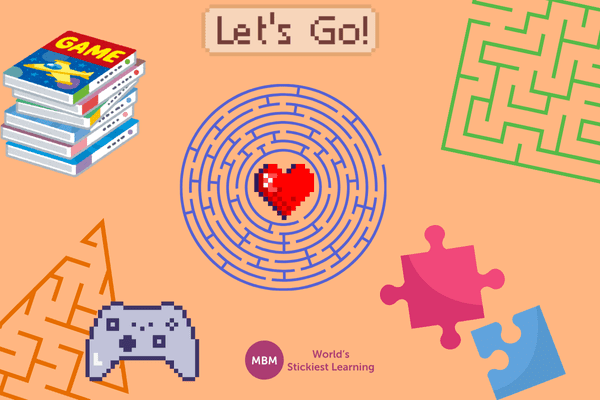
People who have been off work for some time through serious illness might find it too demanding to play problem-solving games in a group. As we mentioned before, in their early days back, when they are either tired or stressed, you could suggest they play them with a colleague. Whoever you are, playing the following games is good for your problem-solving skills:
• Pen and paper games:
Noughts and crosses, Hangman and Battleships. These are about concentration and racing against your opponent.
• Logic and maths games:
Sudoku is the obvious one, but there are others. These games strengthen your ability to process and analyse data, and test your logical deduction, and hence solve problems effectively.
• Puzzles and brainteasers:
Crosswords and jigsaws need you to recognise patterns, think logically and maintain concentration over long periods. They sharpen your cognitive skills, attention to detail, and focus.
• Competitive board games:
Chess and Draughts put your wits against the other player. Not only must you plan your next move, but think ahead and predict their response to your later moves. Scrabble, Dominoes and Connect 4 are a less brain-straining alternative, though you still need to plan and avoid giving your opponents any opportunity to get ahead.
Finally, a quick shout-out to Making Business Matter’s popular Coaching Cards. They come under the heading of problem-solving games because they ‘gamify’ talking one-to-one in coaching sessions about different topics, from negotiation skills to mental health. Doing this serious work with cards brings a comforting and reassuring element of play to the session, and helps reduce the distance between coach and coachee, as they work together to gain benefits from the cards.
III – Why Are Problem-solving Games Important?
3.1: A Quick Look at the Theory Behind All This
Problem-solving games are a great way to get team members on board with solving your business problems, both individually and working together. They’re also a good way to get your team thinking about how to overcome obstacles to achieving project goals and being creative.
Problem-solving games build up the following traits:
- Confidence
- Creative thinking
- Conflict resolution
They also help with:
- Team building
- Team bonding
- Readjustment to work
Specifically, problem-solving games can:
- Offer a non-challenging way to bond with co-workers.
- Help people acquire and practise skills in the psychological safety of a play setting, that they can use in work and other learning.
- Assist with candidate selection: Identifying suitable candidates from a group of applicants by highlighting their leadership traits, communication skills, adaptability and speed of learning.
3.2: How Do Problem-solving Games Help With Team Building, Bonding and Readjustment to Work?
Playing games in a work setting opens people up to joining in and collaborating with their colleagues. They gain confidence in interacting with people, and the group get to know each other. Importantly, managers can also get an idea of people’s characters.
Story: The agency that plays together, stays together
Businesses are built on interaction, and interaction should be enjoyable! I remember visiting an advertising agency with a soft-play area in their office, an adult-size rocking horse, and pinball machines. It might have seemed a touch whimsical, even barmy, to some visitors. But to me it sent the message that this was a serious business that was carried out in a fun environment. Problem-solving games are part of that thinking.
This takes great sensitivity. Introverts and shy people may be overwhelmed at first at the thought of showing themselves up in a room full of strangers. Sharing real-life examples of how problem-solving games offer a non-challenging way to bond with co-workers. So here are some:
Real-life Example #1: Start Them Young: From Support Group to Stable Employment
When our son was young, my wife and I got together with some other local parents with children who were autistic, like him. After coming across each other in different places, we decided it was best to work together to make the most of the resources available to us. We hired a specialist teacher to play with our children every Saturday morning. Like a coach playing problem-solving games with a group of employees, the teacher helped them get used to being with other children and supported them in learning to navigate school and the wider world with brains that were wired differently.
What’s the point of this story? Well, most of our children went into mainstream schools with support, and on into higher education, and then into stable employment. Their positive experiences on those Saturday mornings in their early years stayed with them and made a big difference in how they saw life. For the same reason, it’s good to play problem-solving games at work, to help teams get used to how things are going to be.
Real-life Example #2: The Chocolate Factory
Leading on from this, a top ‘free from’ chocolate supplier is committed to giving autistic people opportunities for permanent employment, and has a target of consistently having 20 per cent of such people in its workforce. Their onboarding process involves making sure these individuals feel safe and included from day 1. Whatever your business, whatever your employees are like, with a diverse workgroup, playing problem-solving games during onboarding and other training can play a role in creating that all-important sense of security and ‘identity safety.’
Real-life Example #3: Settling People Back into Work
When people return to the workplace after some time away, say on maternity leave, playing problem-solving games can be a good way to reintegrate them into the group. If they’ve been away due to serious illness, they might find the social interaction and performance expectations at work demanding.
In one job I had, a colleague came out of hospital after cancer treatment, and when they got tired, we spent time playing problem-solving games like Connect 4 with them. In another job, a colleague who returned to work after a breakdown would say to their line manager when they were feeling stressed, and either they or one of their colleagues would take time out to play a game with them to soothe and ground them. Be kind. This calls for great sensitivity on the part of employers, in particular line managers, and supportive colleagues.
3.3 – How Can Games Make You More Chilled About Problem-solving?
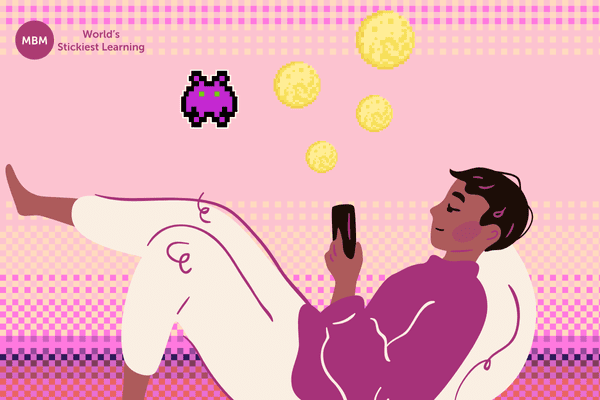
We live in the ‘Age of Overwhelm.’ Problem-solving games help you resist problems overwhelming you, by stepping away and turning solving them into a game. You learn to:
- Take a deep breath
- Verbalise the problem
- Brainstorm solutions
- Evaluate each option
- Try the best ones!
- Evaluate the outcome
And from there,
- Be patient
- Use repetition
- Practise
- Have fun
You learn to think of your next assignment like a game – especially when it’s serious.
3.4 – How Do You Gamify Solving a Business Problem? – Two Real-life Examples From Logistics and Publishing
This might seem a stretch, but gamifying how you solve business problems can be very effective. Here are two real-life examples
Real-life Example #1: Preparing for A Supply Chain Crisis:
In the logistics industry, with its supply chains on which we all depend, wisdom has it that improvising in the face of a problem should be, if not a last resort, certainly a recognition that plans A, B, and perhaps even plan C aren’t working. This can happen during major disruptions, where there are multiple unforeseen events. But these businesses prepare for it to an extent. As well as calling in outside experts who can help identify and mitigate possible risks and be on standby to offer additional flexibility, they can ready teams for such situations and reduce the disabling sense of overwhelm when things go wrong, by gamifying all this and playing problem-solving games as part of team training.
Real-life Example #2: Responding effectively to a falling magazine circulation
A well-known UK trade magazine publisher had some very big titles and was doing very well with audited circulation figures and charging premium advertising rates which people were paying. Then one day, it all went wrong with their biggest title. An audit revealed the printed circulation had fallen by half, yet they weren’t doing anything different. It wasn’t the wonderful articles, and it wasn’t the website. They had to solve the problem before the advertisers found out.
In short, the publisher had a quest on their hands, up there with Dungeons and Dragons, or Beowulf or Jaws. There was a ‘monster’ of a problem, and they had to find it and slay it before it slayed them. To avoid panic setting in about the falling circulation and the ad people being distracted from getting on with their jobs, the publisher turned leading the team and solving the problem into a game. They stepped away from the problem and had a training day where they introduced the idea of problem-solving games, and spent time playing them, with everyone talking about what they had learnt. This enabled them to focus on it while taking away the fear of losing their jobs in the worst-case scenario and avoiding getting overwhelmed by anxiety.
The Discovery?
The publisher presented their people with the details of the problem, and the in-house experts said they would analyse the problem and report back. They discovered that while yes, the printed circulation had fallen, the digital circulation had taken off, and the readers were happy with the paywalls. In fact, the subscriber numbers, open rates and click-throughs were all good. The publisher was emboldened to give the team the latest data and come clean to the advertisers that yes, the printed magazine’s circulation had declined, in line with other trade magazines, but the digital side had been transformed. And so, the publisher avoided a state of overwhelm and collective paralysis, and the problem was solved.
IV – What is the Science Behind Problem-solving Games?
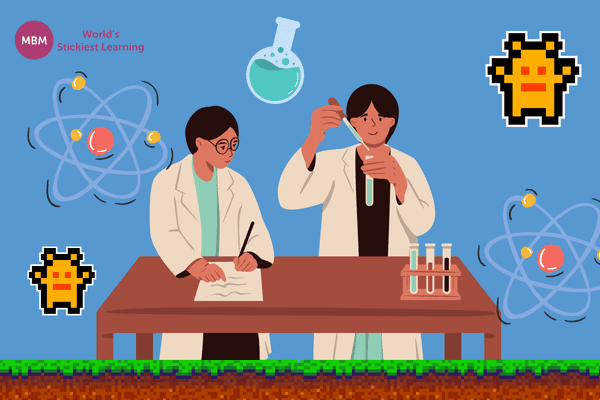
As we said at the start, problem-solving games are good for our health too! They’re a brain workout that strengthens our cognitive processes – how our brain works. The Elevate Brain training blog says taking part regularly in fun problem-solving activities strengthens skills like pattern recognition, logical reasoning, and decision-making. That’s because it challenges our brains to think in new and complex ways by stimulating neural connections, enhancing both short-term working memory and overall cognitive resilience.
The gamedeveloper.com website goes into the neuroscience. Overcoming the challenges in games can stimulate the release of endorphins. Oxytocin is released when we are engaged with a strong narrative. Games that record achievement trigger serotonin release, by making gamers feel better about themselves. Afterwards, players have more focused minds, and it feels easier to identify and implement effective solutions. This is the case whether the game is face-to-face or online.
So, playing problem-solving games can influence mood and behaviour at a chemical level in the brain – which makes it a very powerful benefit.
V – What Kind of Game Player Are You?
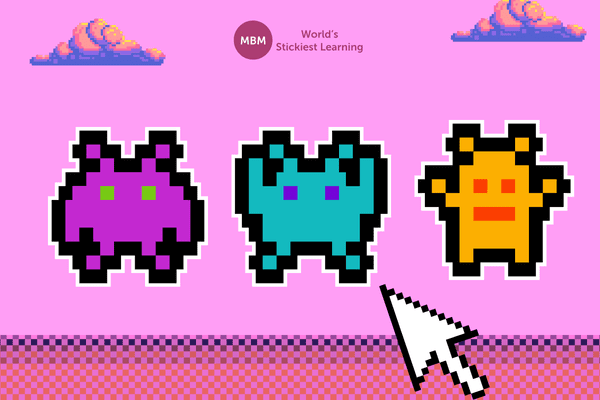
It’s good to be able to answer this question about yourself because it can help you get the best out of these games, and take the learnings into your work. As we saw just now, on the Game-Developer.com website they talk of these user types and the brain chemicals these states of mind release. For any medics reading this, we’re clearly not talking here at a clinical level, but it might be helpful for other readers who are interested in how their bodies and minds work. So, think about the games you play, and how you play them – which one of these types are you? Here’s what Game-Developer.com say you’re getting from being that kind of player:
• Achiever (Mastery):
Endorphins are “Feel-good” chemicals which make you feel better and put you in a positive state of mind. Dopamine is a neurotransmitter and hormone that plays a role in body functions, including movement, memory, pleasurable reward and motivation.
• Socialiser (Relatedness):
Oxytocin enhances our feelings of bonding, trust, and empathy, and increases emotional connection with others, and Serotonin makes us feel more focused, emotionally stable, happier and calmer.
• Philanthropist (Meaning, Purpose):
You’re getting Dopamine, Oxytocin, and Serotonin.
• Free spirit (Autonomy):
This gives you Dopamine.
• Player (Rewards):
You’re getting Dopamine, Endorphins, and Serotonin.
Game-Developer.com quotes work on this by the cognitive scientist and behavioural therapist Andrea Kuszewski. She’s come up with some great insights, which will help you get a handle on all this, and use them to inform your coaching with problem-solving games. You can read about her on their website, and find out more about her online.
Conclusion
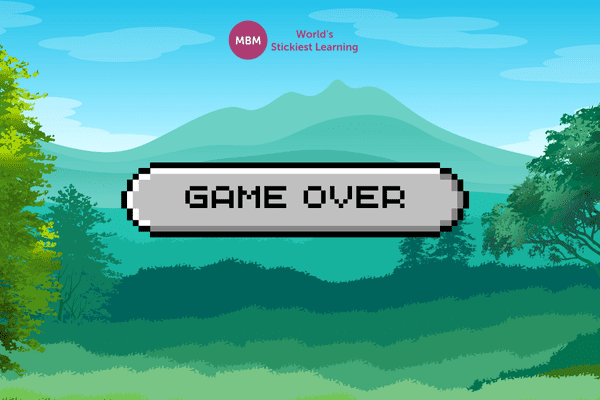
So, there you are, everything there is to know about Problem-solving games. In this article, we explored how problem-solving games can benefit everyone, from small businesses where the owner is also the manager, to larger companies. So how do you use them, and when? In Part I, we looked at the 7 problem-solving techniques, and in Part II we explored the different kinds of problem-solving games that are out there.
From there, in Part III we looked at why problem-solving games are important, and the theory behind these games. After that, we took two real-life examples of businesses using problem-solving games to equip people to navigate crises.
Next, in Part IV we looked at the science behind this, and how problem-solving games are good for our health, giving us a brain workout that strengthens our cognitive processes. Finally, in Part V, we pose a question – what kind of game player are you? Hear from the experts how that decides which endorphins and other substances get released in your brain when you play these games.
The thing to take out of all this is, that business is very serious, but playing Problem-Solving Games can help people keep their perspective, stay human and win through.




